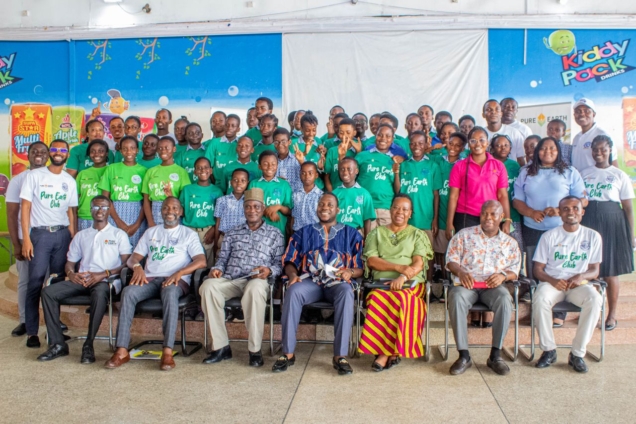
Source: Myjoyonline.com
An Environmental Non-Governmental Organisation, Pure Earth Ghana has called on government to prioritise measures to decisively combat childhood lead exposure and its sources.
According to the NGO, a research it conducted has revealed that lead poisoning, especially among children is very prevalent in Ghana indicating that children are exposed to the heavy metals in their daily lives.
The situation in Ghana is not very different globally as the UNICEF estimates that 800 million children globally or one in every three children have levels of lead in their blood.
To deal with the menace, 22nd – 28th October has been officially scheduled for International Lead Poisoning Prevention Week. As part of activities to commemorate the 2023 edition dubbed “End childhood lead poisoning”, Pure Earth Ghana has led a campaign to raise awareness about the health effects of lead exposure among children.
Speaking at the event held at the Tema Parent’s School, Country Director of Pure Earth Ghana, Esmond Wisdom Quansah revealed that the vast majority of children affected worldwide by lead poisoning live in low and middle-income countries like Ghana where research into the menace is very limited.
He further disclosed that the impact of lead poisoning among children is very dire hence requires a nationwide response.
“In 2019, the Institute of Health Metrics and Evaluation estimated that lead exposure accounted for more than 900,000 deaths annually and was responsible for significant global disease burden due to the long-term effects of lead exposure on health. Lead can compromise neurological, cardiovascular, and reproductive systems, including increased risk of high blood pressure and kidney damage later in life,” he said.
He continued that “childhood lead poisoning can result in learning disabilities and challenges that affect children’s executive functioning impulse control, and levels of aggression.”
Esmond Quansah therefore emphasised the critical role of government’s leadership in dealing with the menace. Government, he says, must prioritise measures to reduce lead pollution in the environment, eliminate sources, develop capacities and toughen regulatory measures.
He again advised the private sector to “ensure responsible use of lead and safe stewardship by stopping the use of lead in consumer products, ensure safe stewardship of lead in industrial applications and complying with the laws and regulations.
Board Member of Pure Earth Ghana and former Executive Director of the Environmental Protection Agency (EPA), John Pwamang on his part called on government to equip health facilities in their prevention and management of lead contamination.
“The system must be equipped to protect children from lead exposure. Trained health care workers play a critical role in the prevention of lead poisoning, specifically in the recognition of the symptoms of lead exposure, the testing of blood lead levels and the management of lead poisoning,” Mr. Pwamang appealed to government.
Representative of the Ghana Health Service, Dr. Caesar Nyadedzor admitted that the task of dealing with lead poisoning is daunting and that public battle that must be won.
He disclosed that the service is currently collaborating with key stakeholders to address the exposure and contamination of the poisonous metal across the country.
He said, “the GHS which is already working with key stakeholders to address lead exposure and poisoning will continue to work with all stakeholders including schools and children until desired results are achieved.”
Source: www.myjoyonline.com








